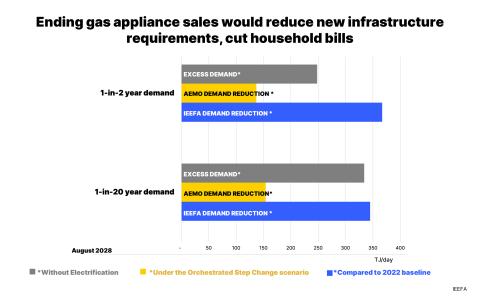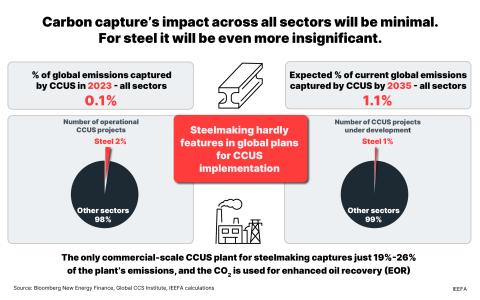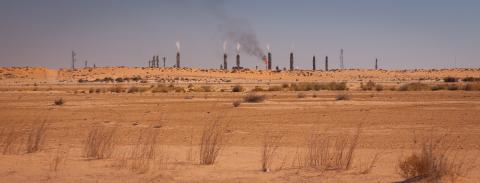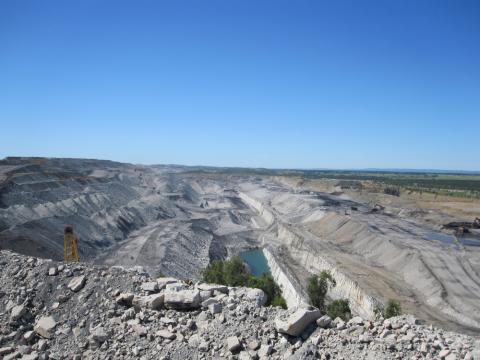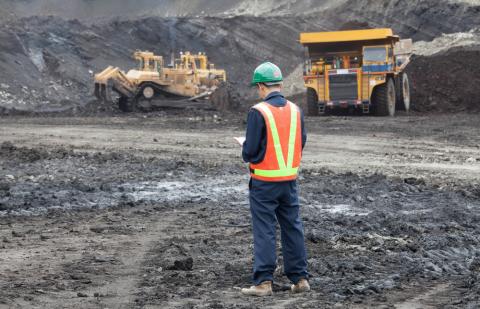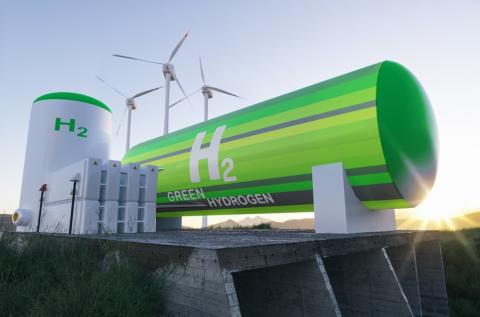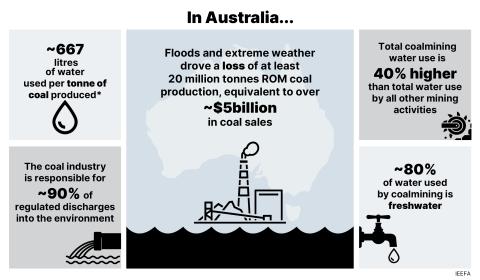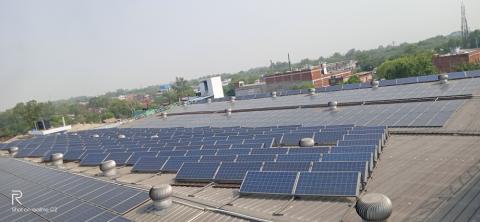A house of cards in Australia
Download Full Report
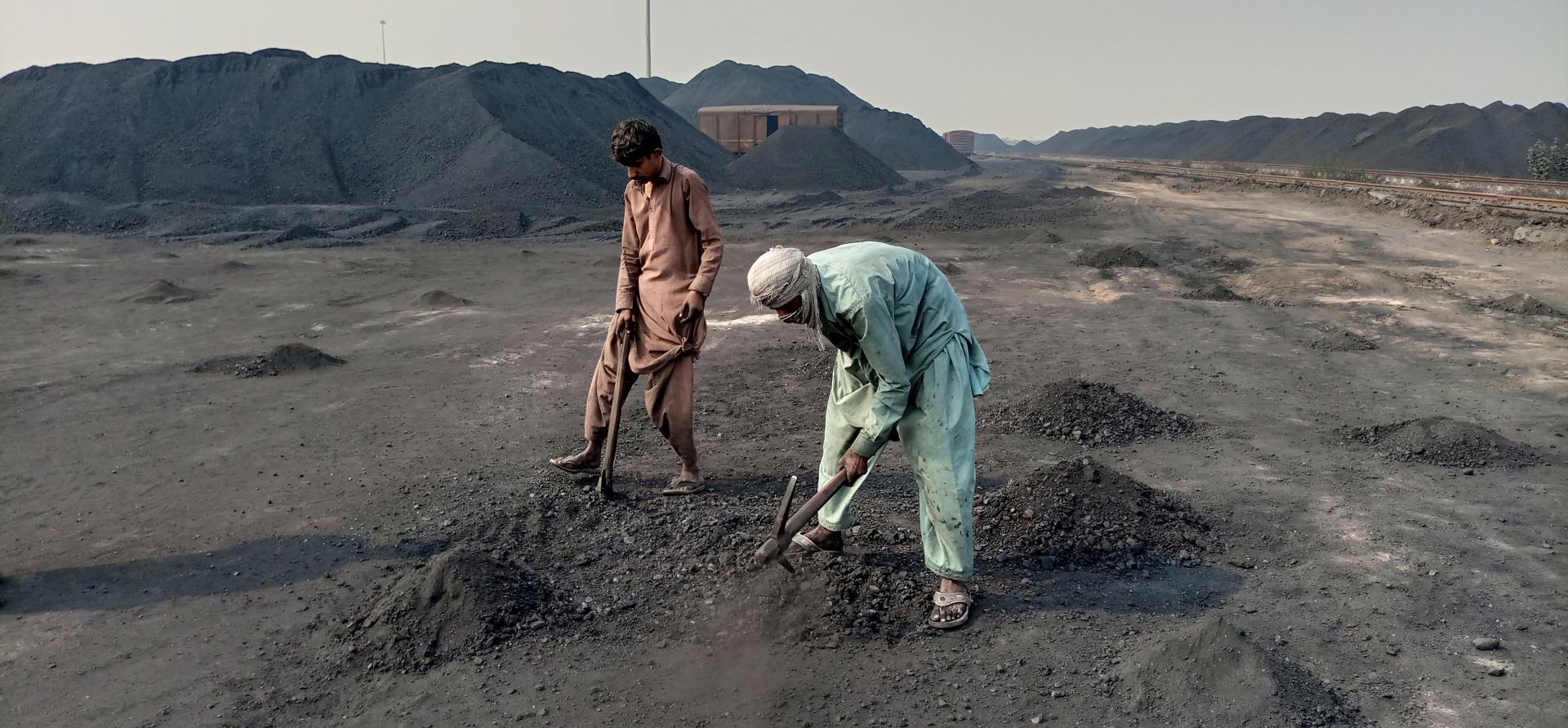
Key Findings
When Adani Ports & SEZ Ltd acquired Adani Abbot Point Coal Terminal (AAPCT) in May 2011, the Adani press release understandably emphasised the fact that the yet to be fully commissioned port was 100% covered by long term take-or-pay (ToP) contracts.
An analysis of the AAPT accounts for the last five years highlights that on revenues of a cumulative A$1,211m, and despite a gross profit margin of 83%, AAPT has funded $719m of lease rentals to an associated entity (Mundra Port Holding Trust), plus $233m of net interest expenses.
IEEFA notes that the annual related party rental payments from AAPT to Mundra Port Holdings Trust have increased by $95m (up 90%) over the last three years, and this has had the effect of lowering profits in AAPT and moved Mundra Port Holding Trust into a net profit position and hence in a position to pay distributions in the last year or so.
Executive Summary
In August 2017, Adani Enterprises Ltd said it would “start early works” on its Carmichael coal mine project, in October 2017, using A$400m of its own funds despite having yet to secure funding for this A$5bn greenfield project.
Investors should be aware that this high-risk gamble is linked to the imminent refinancing needs of Adani’s existing Abbot Point Coal Terminal (AAPCT), which runs the risk of becoming a stranded asset if the controversial Carmichael mine does not proceed.
Currently operating at just over 50% capacity, AAPCT needs the Carmichael mine to fill the gap created as its current Take-or-Pay (ToP) contracts progressively expire.
AAPCT faces a A$1.48bn refinancing by November 2018 and a cumulative debt refinancing of $2.11bn by 2020. The first payment of $A85m was due to be paid to the State Bank of India in September 2017. This refinancing is made even more difficult by the fact that the Wiggins Island Coal Export Terminal (WICET) faces a stressed US$2.8bn refinancing around the same time. For the purposes of refinancing Abbot Point, Adani needs to demonstrate that Carmichael will progress in order to convince financiers that AAPCT will be fully utilized into the future.
With a major refinancing imminent, the financial viability of Adani’s Abbot Point port is increasingly at risk due to a combination of factors:
- A consistently low utilization rate of 50-55% that suggests an asset that is structurally challenged, with previously long-dated Take-or-Pay (ToP) contracts for port volume usage set to reduce significantly from 2019 onwards;
- The progressive expiry of ToP contracts, lending AAPCT a rising dependence on the yetto-be committed and high-financial-risk proposed Carmichael mine as the foundation customer of the port going forward;
- The owner of the Carmichael mine proposal, Adani Mining Pty Ltd, having shareholder’s funds of negative $230m and net debt of $1.48bn, making it a high-risk proposed user of up to 50% of the total volume of the Abbot Point port;
- The fact that AAPCT has estimated net debt of $2.04bn (including through a series of complex intercompany loans) now roughly matching the original investment price, plus subsequent capex. With combined shareholders’ funds estimated at negative $228m, it appears that the AAPCT is entirely debt funded;
- Financial institutions becoming increasingly wary of financing coal infrastructure after the debacle of the billion dollar losses being incurred on the $4.3bn Wiggins Island Coal Export Terminal (WICET); and
- Increased market risk as Abbot Point volumes shift to majority thermal coal, in the context of the structurally-challenged seaborne thermal coal market.
While AAPCT’s complex and opaque ownership structure appears well-suited to minimizing tax—and while it is impossible to be certain—it appears that the ultimate owner of the port is a British Virgin Islands-based entity, ARFT Holding Ltd.
Among the issues this raises:
- Despite cumulative revenue of $1.2bn over the past five years, Adani’s main Australian port subsidiaries, Adani Abbot Point Terminal Pty Ltd (AAPT) and Mundra Port Pty Ltd, have reported a cumulative tax expense of zero in Australia over that period;
- Loans between entities within the complex structure mean that AAPCT entities have advanced $52m to the Adani Family’s T0 proposal and $182m to the Adani Family’s Carmichael Rail proposal;
- The sole Singapore parent entity director is Vinod Adani, who has been the subject of investigations for money laundering by the Indian Director of Revenue Intelligence (DRI).
With the financial viability of AAPCT increasingly tied to the future prospects of the high risk Carmichael coal project (for which Adani is yet to secure final clearances), any potential investors in Abbot Point are exposed to the following Carmichael project risks (these are in addition to the risk that arises from the stressed financial position of Carmichael proponent Adani Mining Pty Ltd):
- The fact that the Indigenous Land Use Agreement (ILUA) with Indigenous Traditional Owners of the mine site is not registered and is being contested in court;
- The fact that low-grade Carmichael thermal coal (which has very high ash relative to its key competitors in Indonesia and Australia’s Hunter Valley);
- The fact that thermal seaborne coal is in structural decline due to the Indian Government’s policy of reducing coal imports to zero and China’s progressive electricitysector transformation (India’s thermal coal imports have continued the downward trend of the last two years and are down 13% year-to-date in 2017 compared to the prior year;
- The fact that Adani’s major proposed offtake coal customer, Adani Power Ltd’s 4.6GW import coal-fired power plant at Mundra in Gujarat, is financially distressed and for sale for Rs1;
- The fac that analysts see no demand for more seaborne thermal coal supply (“We're generally of the view that the global coal market doesn't need new supply”—CLSA)”.
Press release: IEEFA Australia: Escalating Financial Risk in Adani’s Abbot Point Coal Terminal
Please view full report PDF for references and sources.




